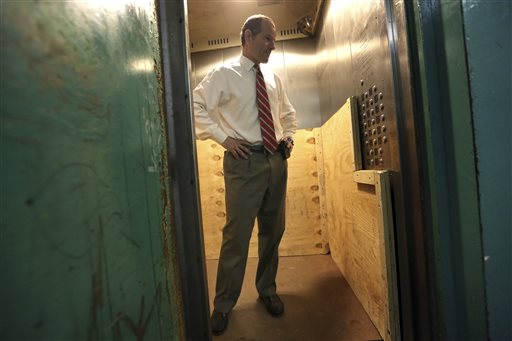Spitzer unveils policy plans for NYC

Unveiling the first policy proposals of his comeback campaign, New York City comptroller candidate Eliot Spitzer calls for sweeping reforms to the public housing system and delivers a sharp rebuke of Mayor Michael Bloomberg’s suggestion of fingerprinting tenants.
Spitzer, the former governor who resigned in 2008 after admitting to paying for sex with prostitutes, was scheduled to announce the wide-ranging housing plans at a news conference Wednesday. They include a critique of the city’s plan to lease public housing land to private developers.
“Sweetheart lease deals with private developers shortchange (the New York City Housing Authority) and its residents,” writes Spitzer in his policy proposal, which was obtained by The Associated Press ahead of his announcement. He calls for a resident advisory board to review any sales.